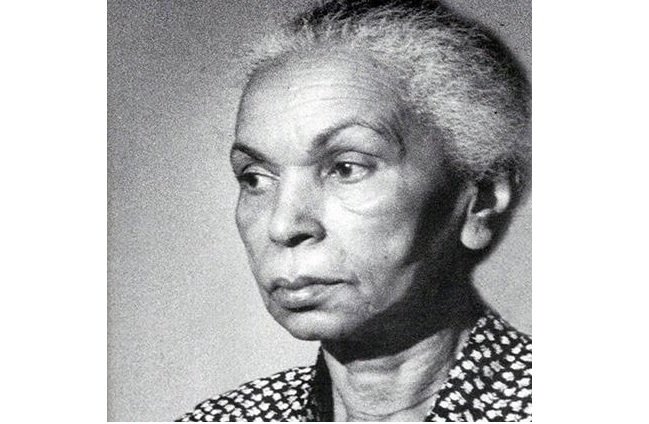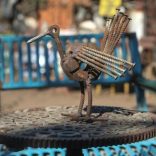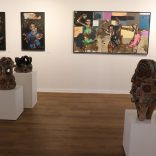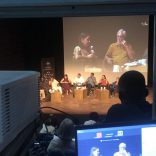Mozambique: Sustainable Art Meeting Bienal EBAS Maputo - registrations now open | Watch
July is dedicated to Noémia de Sousa @ Camões Maputo

Photo: Supplied
As part of its Writer of the Month initiative, the Camões – Portuguese Cultural Centre in Maputo is dedicating the month of July to world-renowned Mozambican poet and writer Noémia de Sousa.
In order to broaden knowledge of the work of the poet, a session entitled “If you want to know me: Noémia de Sousa by Calane da Silva” will be held today, July 8, at 5:00 p.m. The session will be led by renowned Mozambican poet, writer and journalist Calane da Silva, and will take place at the Camões Library – Portuguese Cultural Centre.
During this meeting, Calane da Silva will present a book that is being written on Noémia de Sousa, reading some of her work and exchange impressions with those attending.
Camões – Portuguese Cultural Centre in Maputo holds monthly Writer of the Month initiatives in its library, with the aim of promoting reading, especially among the young, and contributing to better and wider familiarity with writers and works in the Portuguese language. The work and the biography of the chosen author are revisited and analysed.
Every month, a well-known writer is chosen and, in partnership with institutions of higher education, associations and theatre groups, a selection of texts by the author is read in sessions that explore the literary text. Writing and orality are thus both the focus of these sessions.
Sessions are always free.
Se Me Quiseres Conhecer
By Noémia de Sousa
Se me quiseres conhecer,
estuda com olhos de bem ver
esse pedaço de pau preto
que um desconhecido irmão maconde*
de mãos inspiradas
talhou e trabalhou
em terras distantes lá do Norte.
Ah, essa sou eu:
órbitas vazias no desespero de possuir a vida.
boca rasgada em feridas de angústia,
mãos enormes espalmadas,
erguendo-se em jeito de quem implora e ameaça,
corpo tatuado de feridas visíveis e invisíveis
pelos chicotes da escravatura…
Torturada e magnífica.
Altiva e mística.
Africa da cabeça aos pés
— Ah, essa sou eu!
Se quiseres compreender-me
vem debruçar-te sobre minha alma de Africa,
nos gemidos dos negros no cais
nos batuques frenéticos dos muchopes
na rebeldia dos machanganas
na estranha melancolia se evolando…
duma canção nativa, noite dentro…
E nada mais me perguntes,
se é que me queres conhecer…
Que eu não sou mais que um búzio de carne
onde a revolta de África congelou
seu grito inchado de esperança.
Biographical Notes
Noémia de Sousa was born in 1926 in Catembe and died in Cascais (Portugal) in 2002. Noémia’s father came from a Portuguese-Afro-Goan family from the Island of Mozambique and her mother was a native of Bela Vista, the daughter of a Ronga chief, Belenguana. She is the author of a dense poetic work that represents the resistance of the African woman and the struggle of the people for their freedom. Her writing talent first emerged producing pamphlets with her brothers and, very soon, Noémia was invited to collaborate for the newspaper of Mocidade Portuguesa.
Noémia de Sousa always published her own poems, because she felt they would have more impact on young people. It was only much later that she accepted an invitation to publish her only book, Sangue Negro [Black Blood] (2001), which contains 46 poems, written between 1948 and 1951. This was a very intense period in which Noémia collaborated closely with other major figures in the arts and letters of Mozambique: Ruy Guerra, Ricardo Rangel, João Mendes, José Craveirinha, Virgílio de Lemos, among many others. This was how the texts appeared in the Mozambican press (O Brado Africano, Itinerário, Msaho), in the Angolan press (Messagem) and, later, the Portuguese press (Notícia de Bloqueio, Mozambique 58, Vértice). After creating the ‘Negritude’ movement with José Craveirinha, in 1951 Noémia fled to Portugal to escape the Portuguese colonial secret police, PIDE.
In Lisbon, she encountered the “Utopian generation” promoting the independence of African countries, and worked side by side with prominent African nationalists such as Amílcar Cabral, Mário de Andrade, Marcelino dos Santos, Lúcio Lara, Agostinho Neto, Francisco José Tenreiro. Still persecuted in Lisbon, many of these young people fled to France, where Noémia lived in Paris, working at the Moroccan Embassy until 1973, then returning to Portugal to work at Reuters.
“As the voice of Negritude, Noémia’s voice is not a gratuitous narcissistic exaltation of being black, but of being black as object of economic, cultural or racial subjection,” Francisco Noa wrote. Her poetry “ends up integrating ideological elements that allowed it to function simultaneously as an Aesthetic Manifesto and a Political Manifesto” (Fatima Mendonça). through its influence on the generations of poets that followed, Noémia de Sousa is considered the “Mother of Mozambican poets”.
Calane da Silva was born in the city of Lourenço Marques (now Maputo) on October 20, 1945. He was a professional journalist for 25 years, having headed the offices of the main national information agencies. He is a Master and also a PhD from the Faculty of Arts of the University of Porto, Portugal. He is a lecturer at the Pedagogical University of Maputo. He is a founding member of the Association of Mozambican Writers, the Mozambican Association of Portuguese Language, the National Organisation of Journalists, the current National Union of Journalists, the International Institute of the Portuguese Language (IILP) and he is Chairman of the IILP Scientific Council . He is also a member of the National Bioethics Commission and President of the Associative Rainbow Group, Phytotherapy Science and Spirituality. For many years he was Director of the Brazil Mozambique Cultural Centre, a position in the diplomatic forum. He has a vast bibliography of more than 17 books published among literary works (poetry, short stories, novels and children’s literature), as well as academic works, essays and research in the linguistic-literary field.
He was awarded several literary prizes and some national and international awards, such as the 10 November Literary Prize, the José Craveirinha Prize, the country’s biggest literary prize, the Career Prize, awarded in 2013 by AMEP (Mozambican Association of Advertising companies); the “Excellence in Research” Prize awarded to him by the Rectory of the Pedagogical University on the occasion of the celebrations of the 30 years of that Institution of Higher Education; the Medal of Merit of Arts of Letters Granted by the Presidency of the Republic of Mozambique and still countless diplomas of honour in the academic scope and of the national culture.
He was awarded in 2010 with the Commendation of the Order of Rio Branco by the President of the Federative Republic of Brazil. Calane da Silva is still a theater and film actor, screenwriter of some Mozambican films, co-author of the lyrics of the current National Anthem and also a poem ‘diseur’ with a CD edited by Eduardo Mondlane University.












Leave a Reply
Be the First to Comment!
You must be logged in to post a comment.
You must be logged in to post a comment.